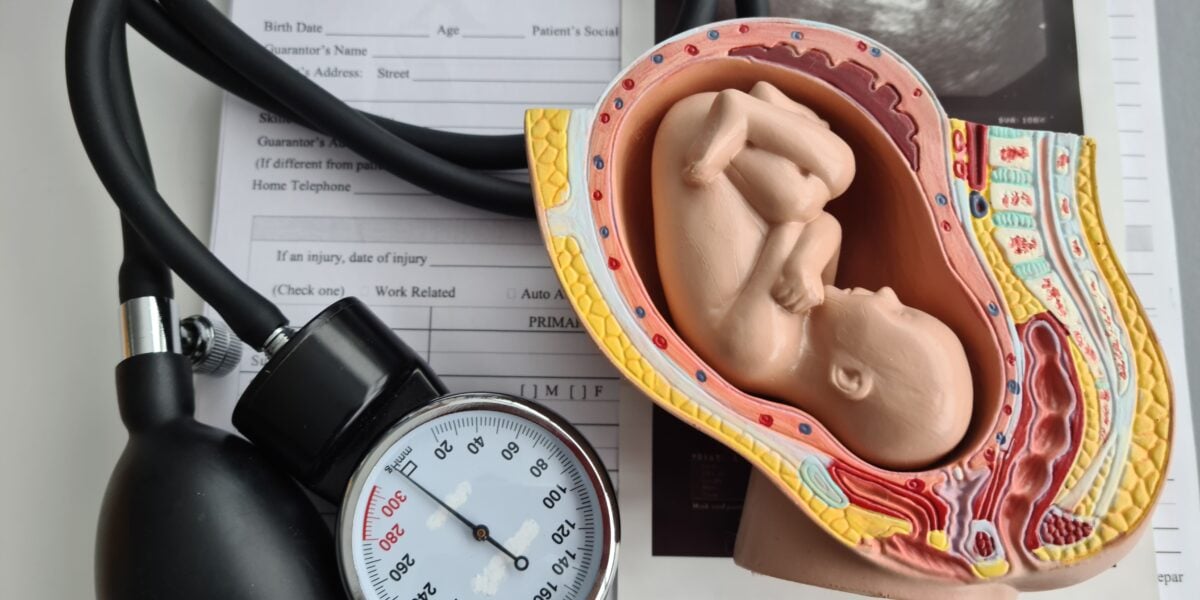Terms like “pro-life” and “pro-choice” are automatically polarizing. The moment you choose to share your beliefs about abortion with another is often the moment they stop listening. The issue has been hashed and rehashed. It’s all too easy to forget that we are talking to real people.
Many of the very women we speak with have had abortions, are abortion-survivors, and may be unexpectedly pregnant now and wondering what they should do.
Every day we are surrounded by unknown stories which may lead to beliefs we don’t agree with. If we choose to look at those we disagree with in love, we find there are usually a few things we can agree on—such as the goodness of health, equality, and social well-being. When we start on shared ground, we can often have a productive and loving conversation about abortion.
Below, are three surprising abortion facts that should be of concern to everyone, no matter your political or religious background.
1. Abortions are disproportionately being performed on Black and Hispanic babies.
According to the CDC, the rate of abortions among Black and Hispanic women is significantly higher than that among white women, meaning that a disproportionate number of the next generation is being lost to abortions.
What’s even scarier is that this is what the founder of Planned Parenthood, Margaret Sanger, would have wanted. A known eugenicist, Sanger wrote about speaking at a Klu Klux Klan meeting in her autobiography, and notoriously wrote of her racist inclinations in letters to friends.
We can adopt a willful blindness towards this fact, but we cannot pretend it is of no consequence.
Get more pro-life news, straight to your inbox

2. Abortion preys on the poor.
Women living at or below the federal poverty line are five times more likely to have an abortion than women living above it, as found by the Guttmacher Institute.
The availability of contraception and abortion over the last forty years has made an unintended pregnancy the woman’s responsibility, rather than a shared responsibility by both parents. This has decreased the motivation for marriage in the event of an unintended pregnancy, which in turn has decreased the risk of casual sex, ultimately resulting in an increase in the number of unintended pregnancies.
This not only results in higher abortion rates among poor women, but it also results in more single-mom households, increasing a woman’s cost of living and making her poorer. This is a deeply entrenched cycle that illuminates the destructive nature of abortion in the lives of the poor.
3. Women who have had abortions are significantly more prone to mental illness and self-harm.
According to HealthResearchFunding, women who have had abortions are three times more likely to commit suicide than women of childbearing age who have not had abortions. They are 81% more likely to have mental health issues than other women. Teens who have had abortions are ten times more likely to attempt suicide than teens who have not had an abortion. To put that in perspective, eighteen percent of abortions in the U.S. are teenagers—that’s almost one fifth of all abortions in the country.
These statistics are frightening and pose a serious health concern to women. Mainstream culture is finally talking about the reality of depression and other mental illnesses, but if we are truly serious about helping people, we have to be honest about the cause.
These facts about abortion are deeply unsettling, and we should not only make others aware of them but hope and pray to change them. As we seek to share the truth about life and to fight the evils that wage war against it, we should remember that we too are being taught every day to see and share the truth about abortion with others in that humble and unifying spirit.













